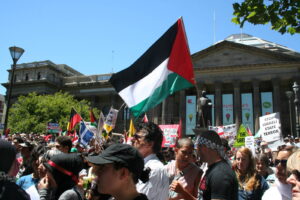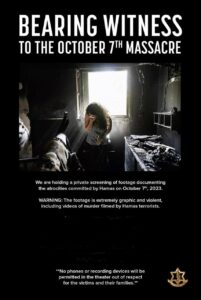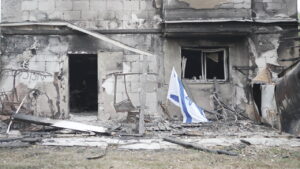 The Enduring Conflict: The Peace Struggle between Israel and Palestine
The Enduring Conflict: The Peace Struggle between Israel and Palestine
The prolonged conflict between Israel and Palestine has drawn attention from all over the world for decades, stirring strong feelings and igniting contentious discussions. This ongoing conflict, which has its roots in complicated historical, political, and theological issues, has had a lasting impact on the Middle East and beyond. Let’s examine the many facets of this dispute today, including its historical context, the state of affairs now, and the likelihood of a long-term settlement.
Historical Background: Discord’s Seeds
The conflict between Israel and Palestine has its origins in rival national aspirations and historical grudges that date back more than a century. Following the UN partition plan, Israel was established in 1948, which resulted in Palestinian dislocation and discontent and laid the foundation for decades of territorial disputes, wars, and violence.
Geopolitical Dynamics: Local, National, and Global Factors
The conflict has attracted regional powers and international parties in addition to being limited to Israeli and Palestinian territory. Major nations, international organizations, and neighboring Arab governments have all contributed to peace initiatives, mediation efforts, and geopolitical moves that have influenced the conflict’s course over time.
Humanitarian Impact: People’s Lives in Danger
The everyday lives of Israelis and Palestinians have been most significantly impacted by the conflict, even outside of the geopolitical chessboard. Families on both sides are grieving the loss of loved ones and dealing with the psychological effects of prolonged conflict. Generations have grown up in an environment of violence, checkpoints, and insecurity.
Struggling for Peace: Chasing illusive answers
A lasting solution has been difficult despite multiple peace attempts, agreements, and diplomatic endeavors. Important turning points like the Oslo Accords of the 1990s provided optimism for a two-state solution and peace, but failures like ongoing settlement expansion and terrorist attacks have fueled cycles of mistrust and violence.
Diplomatic and International Community Initiatives
The international community is still essential to efforts to mediate a settlement between Israelis and Palestinians. The European Union, the United States, the UN, and other parties have all made efforts to promote programs for understanding and reconciliation as well as to foster communication and humanitarian relief.
Opportunities and Challenges: Looking Ahead
There are many difficulties in the Israel-Palestine conflict today, but there are also many chances for advancement. Amidst the darkness of conflict, there is a gleam of light provided by civil society movements that advocate for peace, grassroots projects that encourage cohabitation, and creative methods of economic development and cultural exchange.
In summary, Moving Towards a Common Future
Many Israelis and Palestinians share the goal of peaceful coexistence, despite the many difficulties in the way of peace in Israel and Palestine. As global citizens, we have a responsibility to educate ourselves, have civil conversations, and support programs that advance tolerance, understanding, and peacemaking. When we work together, we can create a future free from the shadows, where Israelis and Palestinians can coexist peacefully and prosperously. liberated from the conflict shadows that have shaped their history.
Ultimately, the road to peace is paved with bravery, compassion, and an unwavering dedication to justice and universal human rights.
Breaking Down the October 7 Israel Attack: A More Detailed Examination of the Event
**October 7th Attack: The Israel-Hamas Conflict’s Global Ripple**
The Israel-Hamas conflict underwent a sharp escalation on October 7, 2023, which had a significant influence on the area and the international scene. The multi-pronged attack by Hamas, which claimed the lives of over 1,400 Israelis, mostly civilians, and resulted in the kidnapping of about 240 others, was a tragic and significant event. Israel retaliated by declaring war on Hamas, sparking a dramatic military build-up that has resulted in the deaths of nearly 11,000 Palestinians. This most recent episode in the ongoing struggle has increased polarization in a number of areas and had major worldwide repercussions. This is an appraisal of the state of affairs as well as the way forward for fruitful communication and world peace.
### **A Crisis Emerging: Prompt Responses and Increases in Severity**
The October 7th attack was not only a terrible blow to Israel, but it also served as a spark for a more extensive military confrontation with far-reaching effects. Israel’s declaration of war resulted in severe and pervasive violence that affected citizens in both Israel and Palestine. The ensuing humanitarian catastrophe has sparked discussion and concern throughout the world, underscoring the urgent need for intervention and resolution.
### **International Relations: The Effect on Global Repercussions**
The global impact of the conflict’s severity is evident. Political and popular opinion in the United States and the United Kingdom have been split in response to the issue. There have been contentious discussions and occasionally violent incidents in civic society and higher education. Due to the Biden administration’s position on the conflict, resignations and criticism from both domestic and foreign sources have occurred. The whole community is currently debating how to handle the escalating conflict and deal with its aftermath.
### **The Difficulty of Fruitful Conversation**
One of the most important concerns at hand is whether rational and fruitful discourse can still take place in an environment this volatile. Conversations concerning Israel’s entitlement to self-defense, the destiny of Gaza, and more general historical matters are rife with sentiment and contrasting viewpoints. Regardless of the intricacy, encouraging conversation is still essential. Here are some things to think about going forward:
1. Encouraging Inclusive Discussions: Including a wide range of perspectives in conversations can aid in bridging gaps and provide a more thorough grasp of the issue. Think tanks, academic institutions, and diplomatic platforms must make an effort to incorporate Israeli and Palestinian perspectives, as well as global specialists.
2. Taking Humanitarian Needs Into Account: Humanitarian aid and assistance for impacted civilians must be provided immediately. Regardless of a person’s country, efforts must be directed on alleviating poverty and improving the terrible circumstances in areas of conflict.
3. Promoting Harmonious Diplomacy: The international community ought to back diplomatic initiatives that try to deal with the conflict’s underlying roots. This involves promoting talks that take into account both parties’ justifiable goals and security concerns.
4. Encouraging Efforts in Conflict Resolution: A sustainable solution may be facilitated by funding long-term conflict resolution initiatives like peacebuilding and reconciliation projects. Prioritizing communication, respect for one another, and teamwork in resolving past complaints should be the top priorities for these activities.
### **The Role of the International Community: Handling Discord**
The function of the global It is crucial for the community to manage the conflict and its effects. Important activities consist of:
**Aiding in the Mediation Process:** International players must keep mediating disputes between disputing parties by providing frameworks for talks and encouraging actions that foster trust.
Taking Care of Misinformation: Ensuring accurate reporting and combating disinformation are essential for promoting informed public conversation. Polarization can be lessened by the media’s honesty and transparency.
Supporting Peace Initiatives: Promoting peace on a local and global level through funding and encouragement can help foster an atmosphere that is favorable to communication and healing.
### **A Call for Reasoned Engagement as a Path Forward**
Even with all of the chaos right now, there is still a way to have productive conversations and finally find peace. All parties involved must be resolute in their commitment to upholding human dignity, attending to urgent humanitarian issues, and having sincere and polite discussions. By concentrating The international community may play a critical role in creating an atmosphere that can lead to long-lasting peace and stability if common goals and understanding are shared.
A tragic and terrifying tragedy that rocked Israel on October 7th has since garnered worldwide and local attention and concern. There were reports of an attack that took place in what is usually thought of as a safe haven—a public area where people congregate without fear. As the crime’s details come to light and investigations move forward, serious concerns over community safety, justice, and security have been raised. The incident has had a significant national impact.
The Event: What is Known Thus Far
The crime took place in Israel on October 7th, according to preliminary investigations. The culprit is accused of carrying out violent activities against several victims. According to reports, the episode was frightening and unprecedented, which prompted quick reactions from law enforcement, public servants, and officials. Authorities are still looking into the circumstances behind the incident, but their top priorities are still figuring out who was behind it, making sure everyone is safe, and helping those who were impacted by the tragedy.
Answers and Opinions
The Israeli community and others have expressed their sorrow, rage, and support in the wake of the tragedy. Together, the public has expressed grief for the victims, solidarity for their families, and a demand for justice for those impacted. The tragedy has rekindled discussions regarding law enforcement’s role in averting calamities, public safety, and the need to safeguard vulnerable people in public areas.
Effects on Security Protocols and Society
The attack has brought attention to how easily violent acts may occur in public areas and has sparked conversations about strengthening security protocols to avert similar tragedies in the future. It has also brought attention to how crucial communal support, cohesion, and resilience are during difficult times. Governments are reviewing security procedures and methods to address worries about societal tensions and their effect on public trust, as well as measures to guarantee the safety and wellbeing of all citizens.
Media Attention and Ethical Issues
Media coverage has been essential in educating the public and establishing the attack’s narrative as the crisis develops. In the reporting of this tragic occurrence, ethical concerns about the responsible reporting of sensitive material, protecting the privacy of the victims and their families, and avoiding misinformation have been crucial.
Proceeding Ahead: Pursuing Restorative Justice
The community is calling for solidarity, resiliency, and unity as it struggles to deal with the consequences of this tragic event. Rebuilding trust and promoting healing require community outreach initiatives, counseling resources, and support services for victims and their families. Furthermore, further inquiries and court cases will be essential to establishing responsibility and guaranteeing justice for all those affected by the assault.
In summary
The attack that occurred in Israel on October 7th has rocked the country and forced a serious examination of safety, security, and community resilience. We are united in our resolve to stand by the victims, hold those responsible for the tragedy accountable, and bolster protocols to avoid such tragedies in the future as the inquiry moves forward and the community grieves. Israel and its people will weather this difficult period with fortitude and solidarity if they remain united, show compassion, and remain dedicated to justice.
most recent information about Israel
According to the most recent developments, Israel is still navigating a challenging environment that is characterized by both internal and global dynamics. Here are some significant events and problems that are presently reshaping the nation:
Political Landscape: With several elections and coalition forms in recent years, Israel has seen a dramatic change in its political landscape. As of right now, a variety of political parties and ideas are brought together in a careful balance to form the coalition government headed by Prime Minister Naftali Bennett.
Situation Regarding Security: Given the continuous hostilities with its neighbors, Israel continues to place a high priority on security. Threats to the nation’s security range from Gaza’s periodic rocket strikes to broader geopolitical issues that affect Middle East stability.
Economic Resilience: Propelled by areas like innovation, technology, and high-tech industries, Israel’s economy has demonstrated resilience in the face of global crises. Continued efforts to fortify economic relations with foreign allies have helped Israel establish itself as a center of innovation and entrepreneurship on a worldwide scale.
COVID-19 reaction: Israel launched one of the fastest immunization campaigns in the world as part of its aggressive COVID-19 reaction. To handle new variations and preserve public health in the face of persistent difficulties, the nation keeps modifying its immunization programs and public health initiatives.
Diplomatic Relations: Israel has been bolstering and deepening its ties with a number of nations on a diplomatic level, including historic agreements to normalize relations with numerous Arab governments. Geopolitical alignments and regional dynamics have undergone notable changes as a result of these events.
Social and Cultural Dynamics:
Israel faces social and cultural issues on the inside, which are a reflection of its multicultural people and nuanced national identity. Discussions about topics like social equality, minority rights, and religious plurality are still running strong and influence public opinion and policy choices.
Palestinian Relations:
With escalations on occasion and efforts to find a long-term solution, the Israeli-Palestinian conflict continues to be a major concern. Initiatives for humanitarian aid and diplomatic contacts with the goal of resolving humanitarian issues and furthering peace efforts are examples of recent developments.
Environmental Difficulties:
Water shortages and sustainable development are two issues that Israel, like many other countries, must deal with. Innovation in water technology and preservation of the environment are important components of Israel’s long-term sustainability plans.
